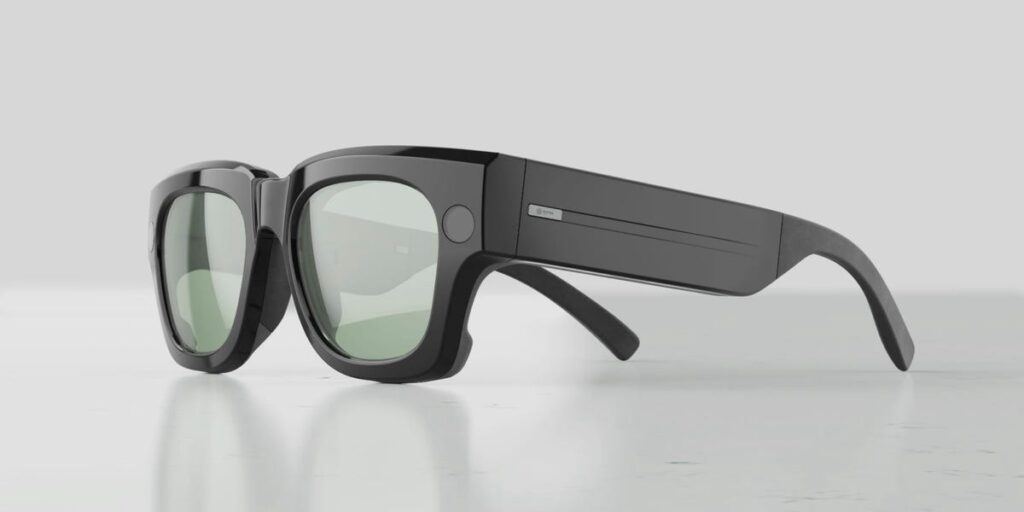- Emteq Labs, a UK-based wearable tech company, unveiled emotion-sensing eyewear powered by AI.
- Sense glasses analyze facial expressions and track physical activity and eating habits.
- Emteq CEO Steen Strand said Sense glasses are not yet available for the consumer market.
Smart glasses are taking the tech world by storm, allowing customers to leverage AI and wearable cameras to capture the world around them.
One company wants to help people wearing smart glasses look inward to gain insights into their own health.
Emteq Labs, a UK-based company, announced on Tuesday that it had developed the “world’s first emotion-sensing eyewear,” which it named “Sense.”
Sense uses a platform powered by AI that offers “lab-quality insights in real life and in real time,” the company said in a press release.
Emteq’s new CEO, Steen Strand, previously led the hardware division at Snap Inc., which is also competing in the smart glasses game with its AR Spectacles. Another competitor, Meta, recently announced updates to its Ray-Ban smart glasses and showed off its Orion AR glasses, though those may never be made available to the public.
Emteq is only looking at commercial partners right now, so the emotion-sensing glasses are not available to consumers.
Strand and Dr. Charles Nduka, the founder and chief science officer at Emteq Labs, told Business Insider that they hope Sense’s insights can help people who are struggling with things like mental illness or obesity.
“With most smart glasses, the sensors are looking out, whereas the data we are gathering is looking at the wearer,” Nduka said. “What you can’t measure, you can’t improve.”
Strand, who wore the Sense glasses during a demonstration for BI, showed how the glasses use contactless sensors to analyze facial data in real time, such as a raise of the eyebrow, a smile, or a frown. Similar to a smartwatch or a smart ring, Sense glasses track physical activity.
The glasses also have a downward-facing camera for photographing food for meal tracking. That data is analyzed and transferred to the Sense app, and the photo is discarded, Strand said. The goal is to make food logging a passive activity, which can “dramatically increase the compliance” when working toward a goal or abiding by a certain diet, Strand said.
“For the diet application, we are now closing the loop. We know what you are eating, we know how you are eating, we know your physical activity and your exercise,” he said.
Strand added that he thinks the glasses could also be used for managing neurological conditions, such as autism or Parkinson’s.
“We want to figure out what are the needs that give them a real benefit,” Strand said of potential consumers, “and justify wearing the glasses.”
Read the full article here


